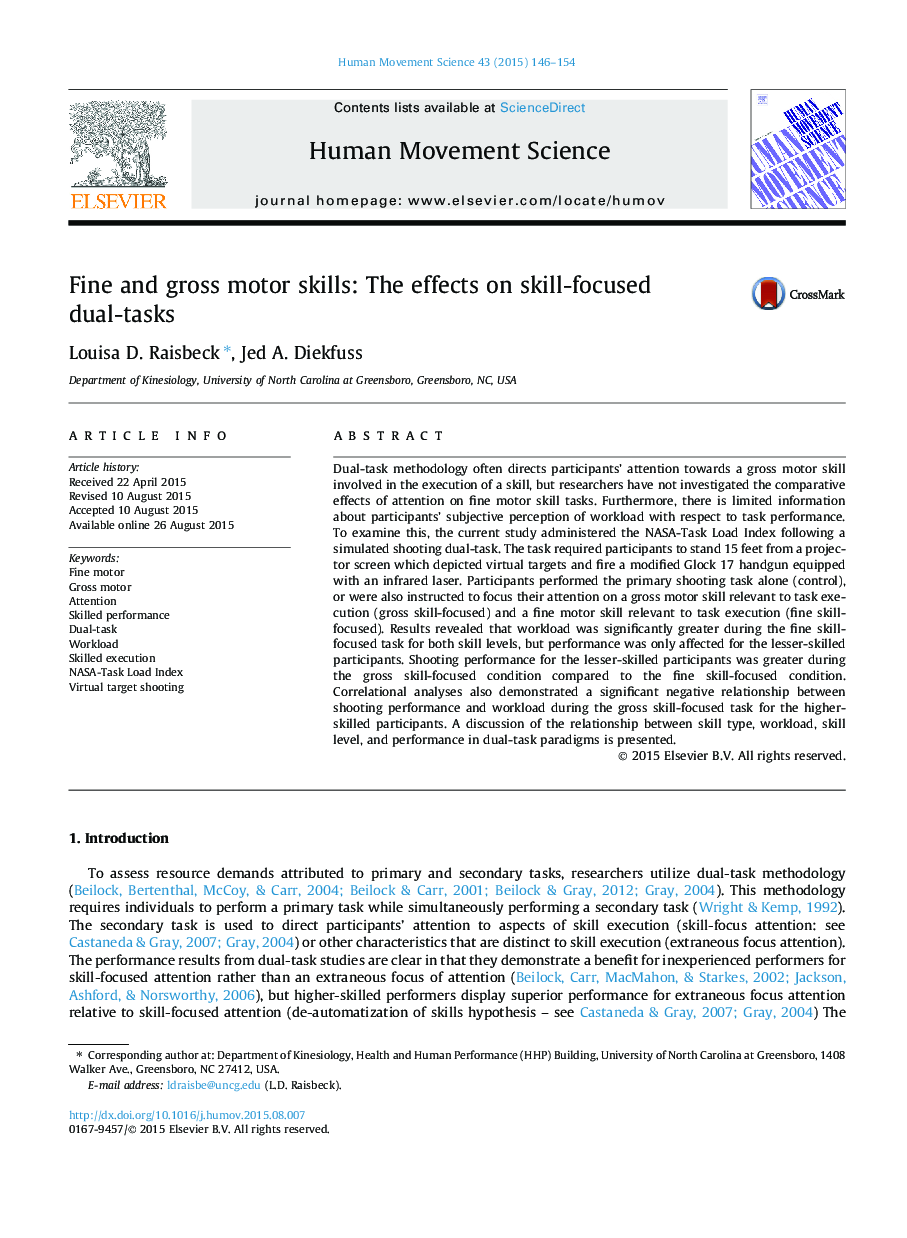| Article ID | Journal | Published Year | Pages | File Type |
|---|---|---|---|---|
| 928272 | Human Movement Science | 2015 | 9 Pages |
Dual-task methodology often directs participants’ attention towards a gross motor skill involved in the execution of a skill, but researchers have not investigated the comparative effects of attention on fine motor skill tasks. Furthermore, there is limited information about participants’ subjective perception of workload with respect to task performance. To examine this, the current study administered the NASA-Task Load Index following a simulated shooting dual-task. The task required participants to stand 15 feet from a projector screen which depicted virtual targets and fire a modified Glock 17 handgun equipped with an infrared laser. Participants performed the primary shooting task alone (control), or were also instructed to focus their attention on a gross motor skill relevant to task execution (gross skill-focused) and a fine motor skill relevant to task execution (fine skill-focused). Results revealed that workload was significantly greater during the fine skill-focused task for both skill levels, but performance was only affected for the lesser-skilled participants. Shooting performance for the lesser-skilled participants was greater during the gross skill-focused condition compared to the fine skill-focused condition. Correlational analyses also demonstrated a significant negative relationship between shooting performance and workload during the gross skill-focused task for the higher-skilled participants. A discussion of the relationship between skill type, workload, skill level, and performance in dual-task paradigms is presented.
